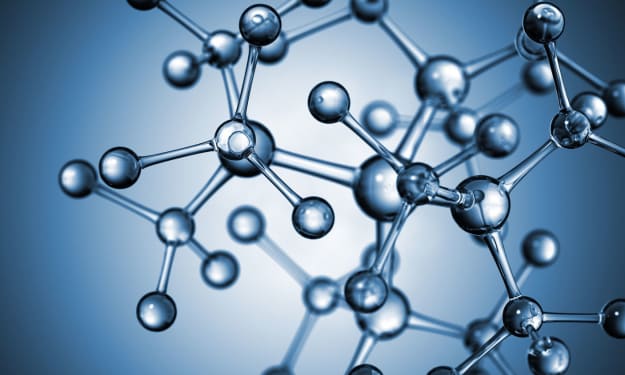Find out everything about toxic plastic.
Ikea recalls plastic travel cups worldwide

.
At 9: 00 a.m. on January 15, Ikea recalled the TROLIGTVIS Trulivis Travel Cup because the transfer of dibutyl phthalate (DBP) in the travel cup may exceed the prescribed limit.
01
At 9: 00 a.m. on January 15, 2020, Ikea issued a product recall notice urging all consumers who have bought the "made in India" TROLIGTVISTrulevis travel cup to stop using the product as soon as possible. At the same time, consumers who own the travel cup are also urged to return the product to any Ikea store, which will be fully refunded. Previously, the product was sold in Ikea stores in China.
It is reported that recent test reports received by Ikea show that the transfer of dibutyl phthalate (DBP) in the travel cup may exceed the prescribed limit.
The national standard "GB 9685-2016 Standard for the use of Additives for Food contact Materials and products" stipulates that the maximum use of DBP in food contact materials is 5%, and can not be used in the production of food contact materials that come into contact with fatty foods, foods with ethanol content more than 20%, and infant food.
According to the letter on notifying the maximum residues of phthalate esters in food and food additives, the maximum residue of dibutyl phthalate (DBP) in food and food additives is 0.3mg/kg.
02
Why does the plasticizer exceed the standard?
Phthalate esters are often added as plasticizers in polyvinyl chloride (PVC) and other substrates, which can make plastic products have good softness. It has high mobility, can be easily released from the product, and can enter the human body through respiratory tract, digestive tract, skin and other ways.
Phthalic acid plasticizers are endocrine disruptors that can cause reproductive disorders in women, affect the development of the uterus and ovaries of girls, and interfere with the development of male sperm. It has been found that phthalate esters exist widely in human serum, fat and semen, which is a great threat to human health.
Because No. 3 plastic PVC is hard plastic, plasticizer must be added to make soft plastic products (such as plastic toys, plastic film, etc.), while o-benzene plasticizer is widely used cheaply, so plasticizer exceeding the standard often occurs in plastic products made of PVC.
For example, on the eve of the Mid-Autumn Festival in 2019, non-toxic Pioneer sent five types of moon cakes purchased by Taobao, JD.com, pinduoduo, offline stores and Huamei mooncakes to third-party testing institutions, including polyvinyl chloride (PVC), polypropylene (PP) and polystyrene (PS).
The test report showed that plasticizer DEHP was detected in the PVC mooncake bracket sold by Taobao and JD.com, and its migration volume was 84.7mg/kg and 18.4mg/kg respectively, which violated the requirements of national standards.
(related reading: although the Mid-Autumn Festival is over, the poisonous moon cake holder still exists.)
The Ikea travel cup is made of polypropylene (PP) and silicone rubber, and usually does not need to add plasticizer, but why is it detected that the plasticizer migration may exceed the standard this time? the reasons may be:
1. Enterprises illegally use plasticizer and add too much DBP.
two。 Enterprises use recycled plastics because the source of some waste plastics is unknown, which may contain a large number of plasticizers, including DBP and DEHP. After recycling, they are mixed with food-grade plastics, resulting in material pollution.
03
Harm of plasticizer DBP
Dibutyl phthalate (DBP) detected in this incident is one of phthalate esters and belongs to the third category of carcinogens identified by the International Cancer Research Institute (IARC). (note: the three types of carcinogens are suspected to be carcinogenic to humans, and there is no sufficient human or animal data. )
04
Choose the right water cup and reject the "cup set"
Security comparison:
Glass cup, non-colored glazed ceramic cup > stainless steel water cup > disposable paper cup, plastic cup, colorful ceramic cup
Preferred glass
Safety index: safety index
The glass is fired at high temperature, does not contain organic chemicals, and the surface is smooth, easy to clean, bacteria and dirt are not easy to grow in the glass wall, so drinking water in the glass is more healthy and safe.
However, we should pay attention to the selection of qualified, lead-free glasses, and do not pour hot water into the boiled water when using it, so as to avoid a sudden rise in temperature difference and lead to cracking and breaking.
Ceramic cups should be painted without colored glaze.
Safety index: safety index
Non-colored glaze painted ceramic cups, especially the inner wall colorless, raw material safety, high temperature resistance, and relatively good heat preservation function, drinking hot water or tea is a good choice.
If there are all kinds of pictures on the ceramic cup, it is not recommended, because toxic and harmful heavy metals such as lead are usually added to the pigment. When the cup is filled with boiled water or drinks with high acidity and alkalinity, toxic heavy metal elements such as lead may dissolve in the liquid, which is harmful to health.
304 stainless steel cup is convenient and durable
Safety index: safety index
Stainless steel cup belongs to alloy products, pay attention to choose food grade stainless steel, such as 304 stainless steel.
It is not a problem for stainless steel cups to hold ordinary water, but do not hold acidic drinks, such as fruit juices, coffee and carbonated drinks, as heavy metals may easily precipitate.
Plastic cups are not recommended.
Safety index: safety index
At present, the materials used in plastic water cups / space cups are mostly polypropylene (PP) and polycarbonate (PC).
Polypropylene (PP) water cups are relatively safe, but if recycled plastics of unknown origin are used, they may be contaminated and contain toxic chemicals such as plasticizers, flame retardants, etc.
Polycarbonate (PC) is easy to release bisphenol A when heated. Bisphenol An is an endocrine disruptor, which is harmful to human health. China has banned the use of PC material and the addition of bisphenol An in baby bottles.
About the Creator
Enjoyed the story? Support the Creator.
Subscribe for free to receive all their stories in your feed. You could also pledge your support or give them a one-off tip, letting them know you appreciate their work.





Comments
There are no comments for this story
Be the first to respond and start the conversation.